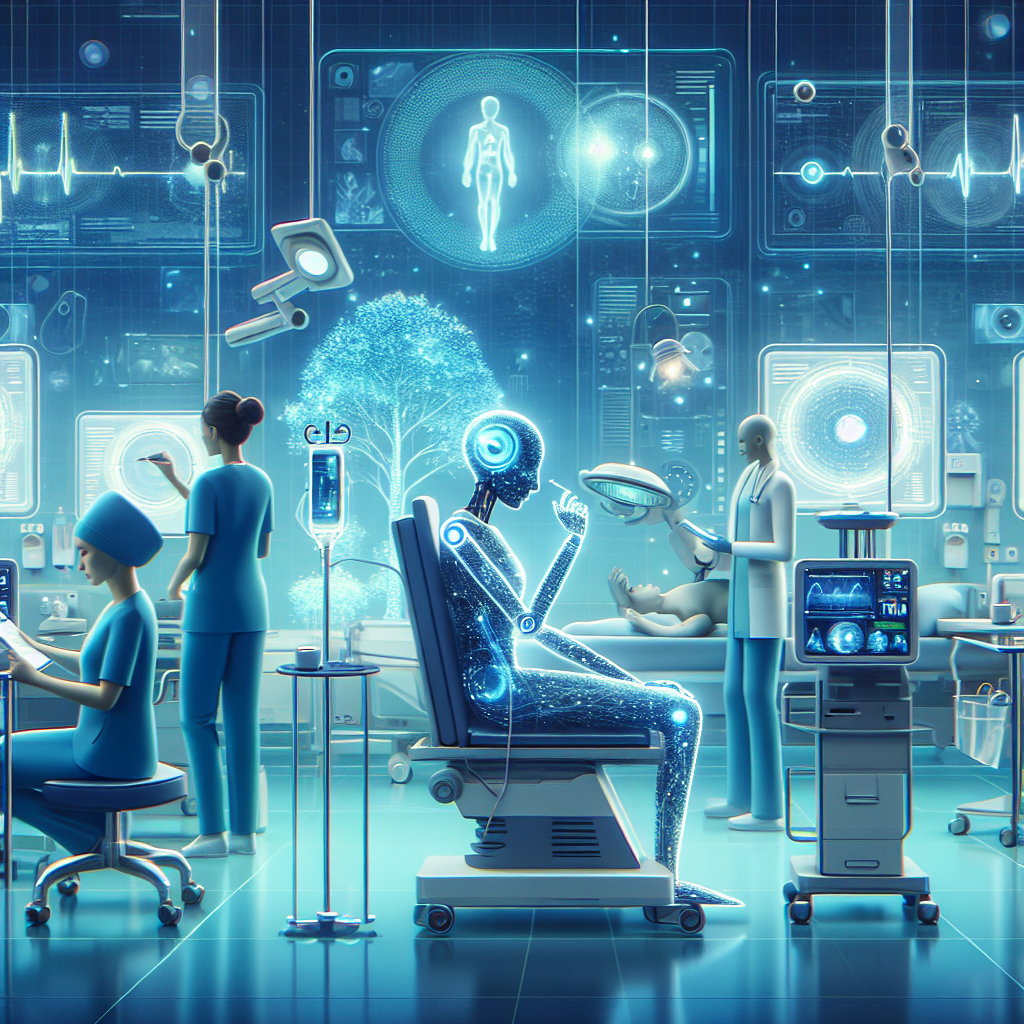AI in Healthcare: Reducing Medical Errors
Artificial Intelligence (AI) has been making significant strides in various industries, including healthcare. One of the key benefits of AI in healthcare is its ability to reduce medical errors, which can have serious consequences for patients. In this article, we will explore how AI is being used to improve patient safety and reduce the occurrence of medical errors in healthcare settings.
What are Medical Errors?
Medical errors are defined as preventable adverse events or mistakes in healthcare delivery that can result in patient harm. These errors can occur at any point in the healthcare process, from diagnosis and treatment to medication administration and follow-up care. Common types of medical errors include misdiagnosis, medication errors, surgical errors, and communication breakdowns between healthcare providers.
The Impact of Medical Errors
Medical errors are a significant problem in healthcare, with studies estimating that they are a leading cause of death in the United States. According to a report by the Institute of Medicine, medical errors result in up to 98,000 deaths annually in the U.S. alone. In addition to the human cost, medical errors also have financial implications, costing the healthcare system billions of dollars each year in unnecessary hospitalizations, treatments, and legal fees.
How AI is Reducing Medical Errors
AI has the potential to significantly reduce the occurrence of medical errors by leveraging data analytics, machine learning, and natural language processing to improve decision-making, diagnosis, and treatment planning. Here are some ways in which AI is being used to improve patient safety and reduce medical errors in healthcare:
1. Diagnostic Accuracy: AI-powered diagnostic tools can analyze medical images, lab results, and patient data to help healthcare providers make more accurate and timely diagnoses. For example, AI algorithms can detect early signs of diseases such as cancer, stroke, and heart disease, allowing for early intervention and treatment.
2. Medication Management: AI systems can help healthcare providers manage medication administration by flagging potential drug interactions, dosage errors, and medication adherence issues. AI-powered prescription systems can also provide real-time alerts and recommendations to prevent medication errors and adverse drug events.
3. Predictive Analytics: AI algorithms can analyze patient data to identify patterns and trends that can predict the likelihood of adverse events, such as hospital readmissions, infections, and complications. By using predictive analytics, healthcare providers can take proactive measures to prevent medical errors and improve patient outcomes.
4. Virtual Assistants: AI-powered virtual assistants, such as chatbots and voice recognition software, can help streamline patient care by providing instant access to medical information, scheduling appointments, and answering patient queries. Virtual assistants can also assist healthcare providers in clinical decision-making by providing up-to-date guidelines and treatment recommendations.
5. Remote Monitoring: AI-enabled remote monitoring devices can track patient vital signs, symptoms, and medication adherence in real-time, allowing healthcare providers to intervene quickly if any abnormalities are detected. Remote monitoring can help prevent medical errors by enabling early intervention and personalized care for patients with chronic conditions.
FAQs
Q: Is AI replacing healthcare providers?
A: AI is not replacing healthcare providers but rather enhancing their capabilities and improving patient care. AI-powered tools can assist healthcare providers in making more informed decisions, diagnosing diseases, and managing patient care more effectively.
Q: How secure is patient data in AI-powered healthcare systems?
A: Patient data security is a top priority in AI-powered healthcare systems. Healthcare organizations are required to comply with strict data privacy regulations, such as HIPAA in the U.S., to ensure that patient information is protected and secure. AI systems use encryption, access controls, and data anonymization techniques to safeguard patient data from unauthorized access and breaches.
Q: What are the limitations of AI in reducing medical errors?
A: While AI has the potential to reduce medical errors, there are limitations to its effectiveness. AI algorithms rely on accurate and comprehensive data to make informed decisions, which can be challenging in healthcare settings with incomplete or outdated information. Additionally, AI systems may not always account for the nuances of individual patient cases and may not be able to replace the expertise and judgment of healthcare providers.
In conclusion, AI has the potential to revolutionize healthcare by reducing medical errors and improving patient safety. By leveraging AI-powered tools and technologies, healthcare providers can enhance diagnostic accuracy, medication management, predictive analytics, virtual assistance, and remote monitoring to deliver high-quality care and prevent adverse events. While there are challenges and limitations to AI in healthcare, the benefits of using AI to reduce medical errors far outweigh the risks, making it a valuable tool for improving patient outcomes and transforming the healthcare industry.

